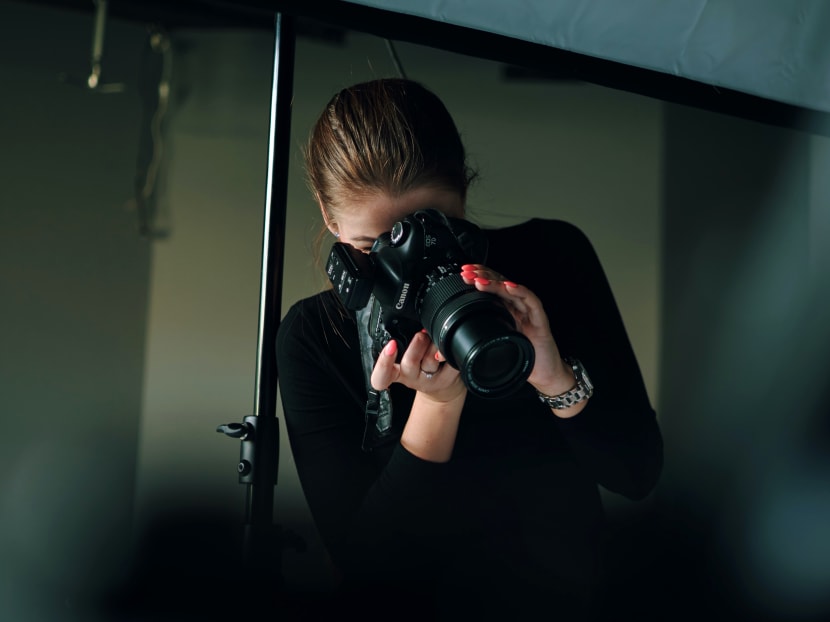Better protection for content creators, exceptions for educators and data analysts among proposed changes to Copyright Act
SINGAPORE — Content creators and performers may soon have better copyright protections, while educators and data analysts could be granted more exceptions when using copyrighted material in their work under proposed changes to the Copyright Act.

If amendments to the law are passed, a photographer may ask for credit for his or her work that is used both online or offline, and take civil action against anyone who refuses to do so.
- Proposed changes to the Copyright Act come after a two-month-long public consultation exercise
- If passed, the law will grant creators the right to be identified on works used by others publicly
- Data analysts and educators may also be able to use material without needing permission from the rights owners
SINGAPORE — Content creators and performers may soon have better copyright protections, while educators and data analysts could be granted more exceptions when using copyrighted material in their work under proposed changes to the Copyright Act.
The amendments were tabled in Parliament on Tuesday (July 6) and the Ministry of Law (MinLaw) said that the proposed changes seek to strengthen the copyright regime in Singapore,
They will ensure that the Copyright Act is up to date on how content is created, distributed and used, MinLaw said in a statement, adding that it has also sought to make the law more accessible by simplifying the language.
A two-month-long public consultation exercise was held by the ministry and the Intellectual Property Office of Singapore to seek feedback on the Bill.
PROPOSED CHANGES TO THE COPYRIGHT ACT
1. Better protections for creators and performers
- It is not mandatory now for creators or performers to be identified on works that are used by others
Creators only have a right to prevent their works from being falsely attributed
Under the proposed changes, creators and performers must be identified and credited for works of theirs that are used online and offline in a “clear and reasonably prominent” manner
For example, if a photograph goes viral online now, the photographer who took the photo cannot require the people who shared the photo to credit him
If the amendments are passed, the photographer may ask for credit and take civil action against anyone who refuses to do so
The proposed amendments will also grant creators of commissioned photographs, portraits, engravings, sound recordings and films default ownership of their work, unless otherwise stated in a contract
For now, the commissioning party or their employer is granted default ownership
MinLaw said that the proposed changes will ensure that creators will be better positioned to negotiate with the commissioning parties and they may further showcase and commercialise their works for other purposes
2. Sellers of unauthorised audio-visual streaming services, devices liable for infringement of copyright
Distributors and retailers of unauthorised audio-visual streaming services or products are at the moment not liable for copyright infringements
Under the proposed changes, there will be new civil and criminal liabilities against retailers and distributors, where those who own the rights of the copyrighted material may sue anyone who knowingly sells, distributes or trades the content
For instance, a film producer who finds out that a retailer is selling set-top boxes that provide consumers with unauthorised access to his films could take the retailer to court under the proposed amendments
3. New exceptions for data analysis, educational purposes
Proposed changes will make it such that data analysts will be allowed to use copyrighted works in their analysis without having to seek the permission of each copyright owner — as long as they are lawfully accessed
The new laws, if passed, will also allow schools and students to use freely available online resources, including web images and videos, for educational use without having to seek permission from each copyright owner, so long as the source is acknowledged and the date of access is attributed
However, students must stop using the material if they find out that the source they used infringes copyright
4. New exceptions granted to galleries, libraries, archives and museums
Under the proposed amendments, galleries, libraries, archives and museums will be given the reassurance that they will not be inadvertently infringing copyright when making copies for administrative purposes such as preservation, internal record-keeping and cataloging
For activities relating to exhibitions — such as putting up a replica when the original is being restored, or taking photos of a painting for publicity materials — the institutions will also be allowed to do so without needing to seek permission from the copyright owner
5. Expiry dates for copyright protection of unpublished works
Under the suggested amendments, unpublished works will no longer enjoy perpetual copyright protections
All works, whether published or not, will be subject to a limited period of protection











